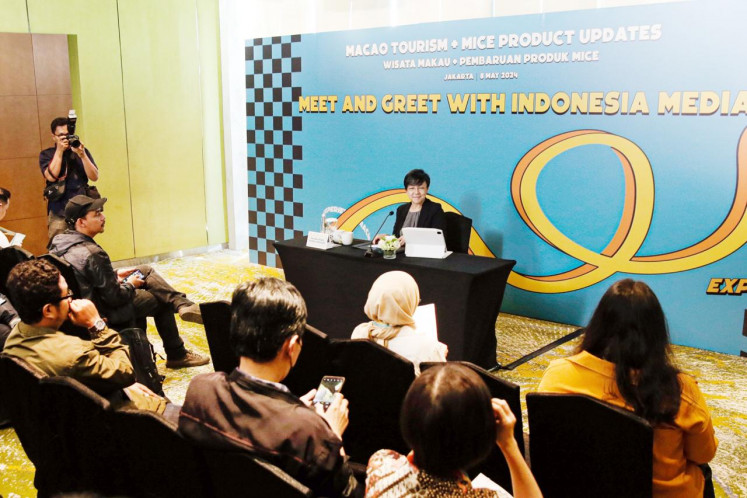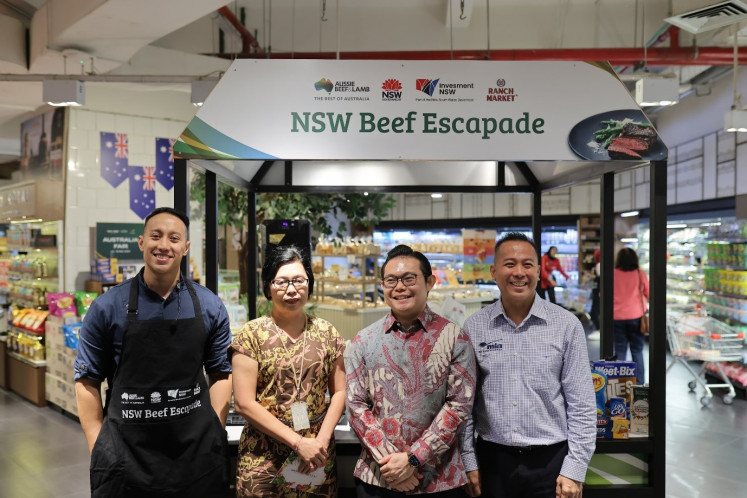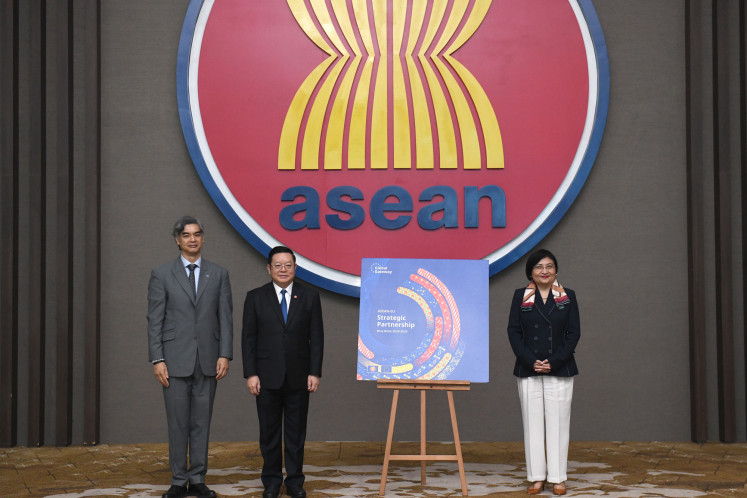Indonesia supports WTO reform and modernization
Change Size
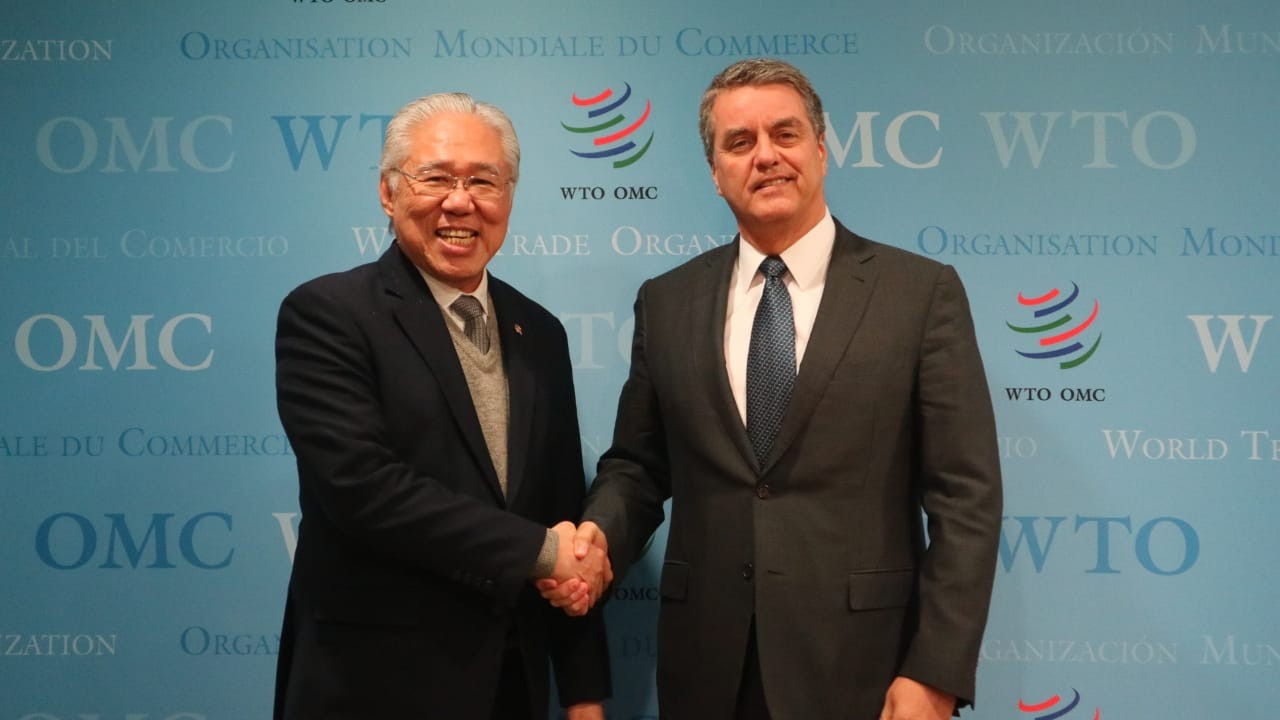 (Courtesy of Ministry of Trade)
(Courtesy of Ministry of Trade)
T
rade Minister Enggariasto Lukita said Indonesia was open to ideas to reform and modernize the World Trade Organization (WTO) in implementing its functions, as long as the ideas accommodated the interests of developing countries.
“The WTO reform will bring positive change to the multilateral trade system and accommodate the interests of developing countries, including Indonesia. The WTO, therefore, should not forget or ignore the unsolved issues, such as the Doha Round negotiations, and pay attention to the interests of developing countries and the least developed countries,” said Minister Enggariasto after a meeting with WTO director general Roberto Azevedo at the WTO headquarters in Geneva, Switzerland, recently.
He said that as the G33 coordinator, Indonesia also wanted the WTO reform to cover other important issues, such as the public stockholding, and the special safeguard mechanism,” he said.
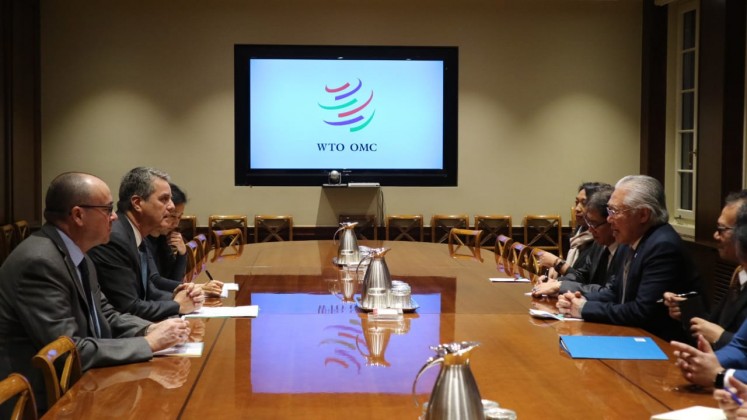
Minister Enggariasto underlined the response of Azevedo, who said the WTO would not ignore the unresolved issues. The proposal to reform the WTO is based on growing uncertainty over the global trade system. The WTO is also seen to be weakening in carrying out its tasks, which is particularly seen through the failure to finalize the Doha Round negotiations, protectionism being heavily implemented by member countries, mounting trade pressure, the US blockade threat against new Appellate Body (AB) members, and the WTO’s lacking monitoring system.
“So, the WTO reform and modernization covers three functions of the WTO, namely monitoring, conflict resolving mechanism, and negotiations,” added Minister Enggariasto.
The WTO reform and modernization has been approved by several member countries, including Canada, Japan, Australia, Brazil, Chile, Kenya, South Korea, Mexico, New Zealand, Norway, Singapore, Switzerland and the European Union through meetings in Ottawa, Canada, on Oct. 24 and 25, 2018.
In terms of monitoring and transparency, the countries that support the WTO reform and modernization said the WTO monitoring system should be strengthened to deal with rising trade pressures. Specifically, Canada and the EU proposed a way to strengthen the monitoring system by easing the complexity of notification procedures, increasing the capacity of member countries, strengthening monitoring at committee level, giving incentives to those making notifications such as financing and technical assistance, and giving sanctions to countries that do not comply with the monitoring system.
“Indonesia is also open to proposals to strengthen the system and transportation of the WTO, but should consider the challenges facing developing countries to enable them to fulfill the commitment,” said the minister.
He said the WTO reform should also include efforts to end the US blockade of new AB members, as without appointment of new members, there will only be one AB member left by December 2019.
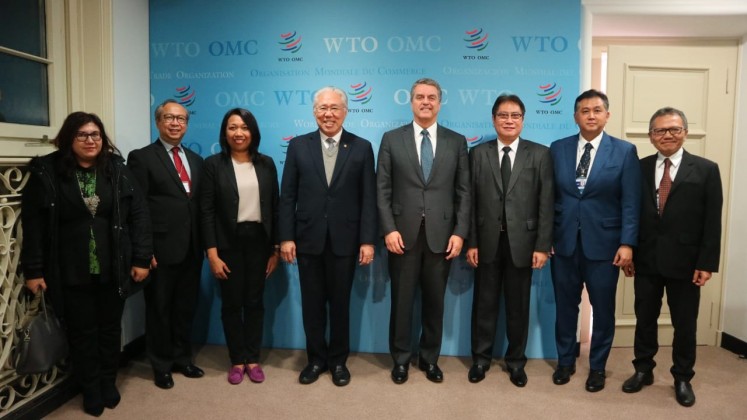
The proposal to establish a committee to appoint new AB members was introduced by Mexico, and supported by 68 countries, including Indonesia. A total of 13 countries called for the termination of the AB blockade during the meeting in Ottawa last October.
“Indonesia supports filling the vacant positions in the AB as soon as possible, as solving one appeal case will need three AB members. Otherwise, it is feared that the AB will be paralyzed if the vacant position is not filled,” said Enggariasto.
According to him, the reform and modernization of the WTO is based on the fact that WTO regulations are already out-of-date and hinder the implementation of WTO functions. This has caused difficulty in finalizing the negotiations of the Doha Development Agenda (DDA), and the special agreement and differential treatment (S&DT), which is considered an obstacle.
Therefore, Canada and EU countries proposed an alternative, in which decisions would be taken by identifying priority issues from the perspective of multilateral and plurilateral aspects, which are related to the unresolved issues such as the finalization of the Doha development Agenda (DDA) negotiations and modernizations issues, which include digital trading, small and medium businesses, investment and issues of competition. (*)




